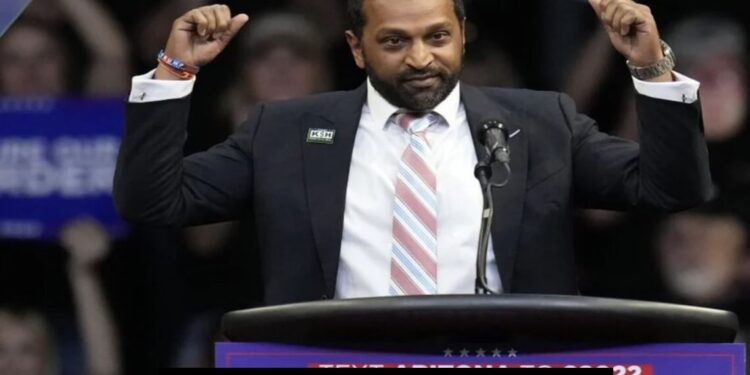In a surprising yet telling move, Republican President-elect Donald Trump has signaled his intent to nominate Kash Patel, a former National Security official and staunch loyalist, to lead the FBI. This decision, which highlights Trump’s determination to reshape the bureau, has sparked widespread debate about the future of the FBI and the implications for national security and governance. Patel’s nomination reflects Trump’s strategy to realign the agency with his vision, emphasizing loyalty and a hardline approach to reform.
Trump’s Rift with the FBI: A Prelude to Change
The tension between Donald Trump and the FBI has been palpable throughout his political career. From the firing of former FBI Director James Comey in 2017 to the bureau’s court-approved search of Trump’s Mar-a-Lago estate in 2022, the relationship has been fraught with accusations of bias and overreach. Christopher Wray, the current FBI director appointed by Trump, has not escaped criticism. Despite being a Republican, Wray has faced backlash from Trump and his supporters, particularly for his role in investigations that have touched the former president.
Patel’s nomination signals Trump’s readiness to oust Wray, whose 10-year term runs until 2027. By law, FBI directors are appointed to long terms to insulate the agency from political influence. However, Trump appears determined to challenge this precedent, setting the stage for a significant overhaul of the bureau’s leadership and operations.
Who Is Kash Patel?
Kash Patel, 44, is no stranger to controversy or the inner workings of Washington. During Trump’s first term, Patel held advisory roles for the Director of National Intelligence and the Secretary of Defense. He gained prominence for his role in House Republicans’ probe into the FBI’s investigation of Trump’s 2016 campaign and its alleged ties to Russia. Patel’s work during this period earned him the reputation of being a fierce defender of Trump’s agenda.
Later, Patel became a key figure during Trump’s first impeachment trial, where concerns were raised about his unauthorized back-channel activities with Ukraine. While Patel denied these allegations, his name continued to surface in controversies surrounding Trump’s presidency, including his role in handling classified documents post-2021.
As a private citizen, Patel authored the book Government Gangsters, which Trump has lauded as a blueprint for dismantling the so-called “Deep State.” This publication underscores Patel’s alignment with Trump’s vision of reforming federal institutions to prioritize loyalty and adherence to a specific political ideology.
A Vision for the FBI: Reform or Retaliation?
Patel has been vocal about his criticism of the FBI, particularly its intelligence-gathering functions. In a September interview, he suggested dismantling the FBI’s intelligence component and repurposing its resources toward traditional law enforcement. “The biggest problem the FBI has had has come out of its intel shops. I’d shut down the FBI Hoover building on day one and reopen it the next day as a museum of the deep state,” Patel declared.
This vision aligns with Trump’s broader critique of the FBI as a politicized institution. Patel’s approach would involve redistributing the bureau’s 7,000 employees across the country to focus on criminal investigations rather than intelligence operations. Such drastic measures would fundamentally alter the FBI’s role in national security and counterterrorism, raising concerns among critics about potential risks to public safety and the rule of law.
Challenges Ahead: Senate Pushback and Public Scrutiny
Patel’s nomination is expected to face significant opposition in the Senate, where Democrats and even some Republicans may resist such a controversial appointment. Critics argue that Patel’s alignment with Trump’s agenda and his history of controversial actions could undermine the FBI’s independence and credibility.
Supporters, however, see Patel as a reformer willing to tackle what they perceive as institutional bias within the FBI. High-profile Republicans like Texas Attorney General Ken Paxton have publicly endorsed Patel, framing his nomination as a necessary step to restore trust in federal law enforcement.
Implications for Trump’s Second Term
If confirmed, Patel’s leadership would mark a dramatic shift in the FBI’s direction. His approach to governance—rooted in loyalty to Trump and a willingness to challenge traditional norms—could redefine the bureau’s role in American politics and society. However, this move also risks deepening partisan divisions and eroding public confidence in federal institutions.
Trump’s decision to back Patel reflects his broader strategy of consolidating power and pursuing an agenda that prioritizes loyalty over convention. Whether this approach strengthens or weakens the FBI in the long term remains to be seen. One thing is certain: Patel’s tenure, if realized, would be one of the most scrutinized and controversial in the bureau’s history.
Conclusion
Kash Patel’s nomination to lead the FBI is a bold and polarizing move that encapsulates Donald Trump’s vision for his second term. By challenging the status quo, Trump and Patel aim to reshape one of America’s most critical institutions. However, this ambitious plan is fraught with legal, political, and ethical challenges that could have lasting consequences for the FBI and the nation. As the Senate prepares to deliberate on Patel’s appointment, the future of the FBI—and its role in safeguarding democracy—hangs in the balance.







